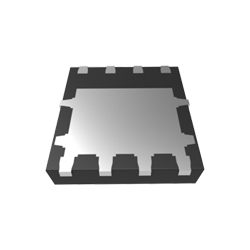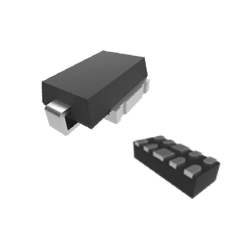/ Optimizing Notebooks with Effective DC-DC Converter Design
DC-DC converters play a pivotal role in the overall performance of notebook computers. Efficiently stepping down the high voltage DC input (typically 19V or higher) from the external adapter to the lower voltages needed (typically 1V to 12V) to operate the CPU memory, graphics card, and other functions with chip sets, these components pull the strings of the computer’s power delivery system.Several factors must be balanced to ensure optimal performance within the constraints of size, thermal management, and efficiency requirements. Well-designed DC-DC converters provide end-users with longer battery life and improved system operation.
/ Application Considerations
For DC-DC converters to maintain optimal performance and efficiency, the following considerations should be incorporated into their design:
- Voltage Regulation - precise control loop design is essential to maintain stable output voltage as input voltage varies due to AC line fluctuations or battery discharge.
Efficiency - battery-powered notebooks must use as little energy as possible, and high-frequency switching and synchronous rectification can assist with this design goal.
Size and Form Factor - minimizing converter size and weight is essential for portability, which may require effective thermal management.
Heat Dissipation - heat sinks or careful placement are required for efficient heat transfer, along with components with appropriate thermal ratings.
Compatibility - input voltages and loads will vary, so ensuring compatibility with varying ranges encountered in computer applications is crucial.
EMI/EMC Compliance - high-frequency switching can generate electromagnetic interference with the potential to impact performance. Proper filtering and shielding techniques should be included to meet industry standards and ensure electromagnetic compatibility.
Reliability - DC-DC converters must be designed with robustness to reliably perform during extreme conditions associated with the everyday use of notebook computers.
Protection Features - overvoltage, undervoltage, short-circuit, and overcurrent protection mechanisms are critical to safeguarding the components and the end-user.
Control and Monitoring - maintaining efficient power management and diagnostics within the system may be necessary to optimize efficiency and the longevity of the battery.
With all these application considerations incorporated into the DC-DC converter design, efficient power delivery and reliable performance are assured.
/ Block Diagram
/Recommended Products
Get a Competitive Edge on Your Next Project
No matter the application or industry, MCC has the service and components you need to get to market faster and reduce overall costs.



